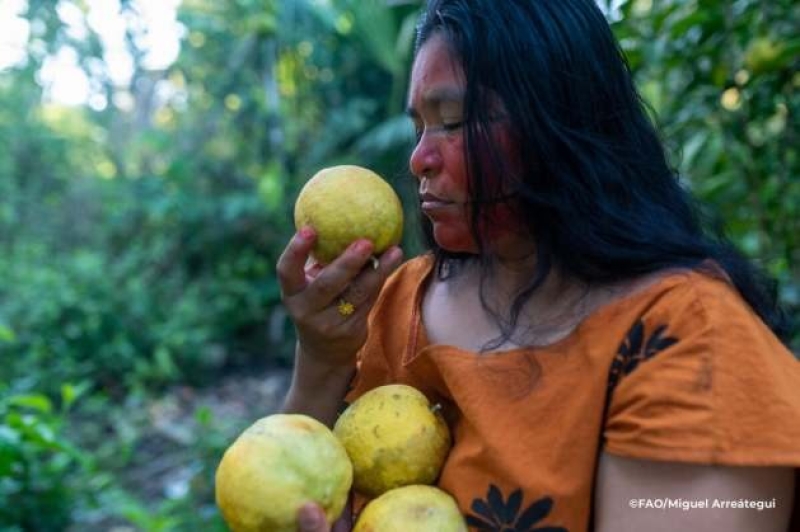- UNGA urges renewed int’l efforts for a resolution of Rohingya crisis |
- First National AI Readiness Assessment Report Published |
- China calls for implementation roadmap for new finance goal |
- New gas reserve found in old well at Sylhet Kailashtila field |
- Revenue earnings shortfall widens in October |
COP30 Calls for Urgent Funds to Transform Agrifood Systems

It is urgent to rethink and transform agrifood systems by accelerating mitigation and adaptation measures. But doing so requires addressing a critical financing gap.
Climate change is no longer a future threat; it is a present reality reshaping agrifood systems and compromising global food security. Its impacts are visible in both the quantity and quality of food, affecting agricultural yields, water availability, pest outbreaks, disease spread, and essential processes such as pollination. Even shifts in atmospheric CO₂ concentration are altering crop biomass and nutritional value.
In 2024, climate shocks were the leading driver of food crises in 18 countries, affecting 72 million people facing high levels of food insecurity. Hurricane Mellisa, which struck Jamaica, Haiti, and Cuba, is a recent example of the severe damage such events inflict on agrifood systems.
Over the past five decades, climate change has reduced global cereal yields by 2%–5%; in Latin America alone, maize yields have fallen by around 5%. Since 1961, climate change has caused a 21% decline in global agricultural productivity—equivalent to losing seven years of progress.
These figures highlight one clear conclusion: it is urgent to rethink and transform agrifood systems by accelerating mitigation and adaptation measures. Achieving this, however, requires addressing a critical financing gap.
Despite the scale of the challenge, only 4% of climate-related development financing in 2023 was directed to agriculture, livestock, fisheries, and forestry. This imbalance threatens the ability of vulnerable countries to adapt and transition toward sustainable production models.
If agrifood systems are to become more sustainable and resilient, climate financing must prioritise agriculture and the livelihoods of rural communities. Without adequate resources, international commitments will remain aspirations rather than results.
In this context, COP30 is decisive. The promotion of agroforestry projects in the Amazon—restoring degraded lands and directly benefiting local communities—is essential for the sustainability of ecosystems related to food and agriculture.
The Tropical Forests Forever Fund (TFFF), presented by Brazil with support from the World Bank, proposes an innovative financing model for global forest conservation. It aims to mobilise USD 25 billion from countries and USD 100 billion from private investors, demonstrating that sustainability can also be an economic opportunity when there is vision and commitment.
The early approval of the COP30 agenda reflects political will to advance climate financing, energy transition, adaptation, and resilience. The challenge now is to turn commitments into concrete targets with clear deadlines and real resources. History has shown that promises without action do not feed anyone.
The FAO is promoting strategies that combine mitigation and adaptation, including integrated fire management, whose Call to Action was launched at this COP under Brazil’s leadership and with the support of 50 countries.
COP30 arrives at a crucial moment to place agriculture, food, and the role of Indigenous Peoples and rural communities at the centre of global discussions.
The future of food, sustainability, and global stability depends on COP30 becoming more than a summit—it must mark the beginning of a new era of climate action focused on transforming agrifood systems.

